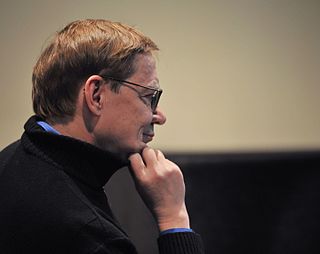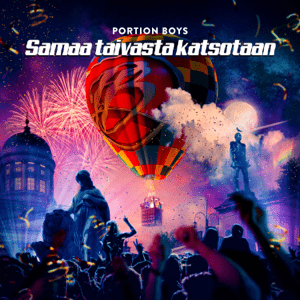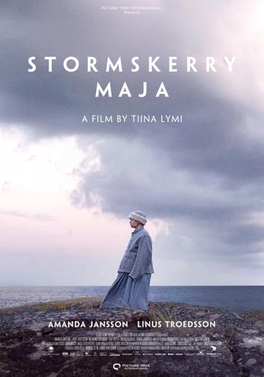
Lahti is a city and municipality in Finland. It is the capital of the region of Päijänne Tavastia (Päijät-Häme) and its growing region is one of the main economic hubs of Finland. Lahti is situated on a bay at the southern end of lake Vesijärvi about 100 kilometres (60 mi) north-east of the capital city Helsinki, 38 kilometres (24 mi) south-west of Heinola and 74 kilometres (46 mi) east of Hämeenlinna, the capital of the region of Tavastia Proper (Kanta-Häme). It is also situated at the intersection of Highway 4 and Highway 12, which are the most significant main roads of Lahti.

Osmo Antero Vänskä is a Finnish conductor, clarinetist, and composer.

Kalevi Ensio Aho is a Finnish composer.

Aino Ackté was a Finnish dramatic soprano. She was the first international star of the Finnish opera scene after Alma Fohström, and a groundbreaker for the domestic field.

Lauri Porra is a Finnish bass guitarist and composer who has written scores for films and other media, as well as commissions from orchestras such as the Lahti Symphony and the Finnish Radio Symphony. He is also known for his work as the bass guitarist in the Finnish power metal band Stratovarius. Porra is a fourth generation musician, and the great-grandson of famous Finnish composer Jean Sibelius.

Karelia Suite, Op. 11 is a subset of pieces from the longer Karelia Music written by Jean Sibelius in 1893 for the Viipuri Students' Association and premiered, with Sibelius conducting, at the Imperial Alexander University in Helsinki, Grand Duchy of Finland, on 23 November of that year. Sibelius first conducted the shorter Suite ten days later; it remains one of his most popular works.

The Lahti railway station is located in the city of Lahti in Finland.

The Maiden of the North is an opera in three acts written in 1898 by the Finnish composer Oskar Merikanto. The piece was a collaboration with the Finnish author Antti Rytkönen, the Finnish-language libretto of whom was based on a script by the Finnish opera singer Lorenz Nikolai Achté. The opera tells a story from The Kalevala, Finland's national epic, in which the old wizard Väinämöinen and the blacksmith Ilmarinen, as rival suitors, vie for the hand of the beautiful Maiden of Pohjola; she is the daughter of Louhi, the villainous Queen of the Northland. Although rarely performed, The Maiden of the North retains a degree of historical significance as the first Finnish-language opera.

Erkki Pohjanheimo is a Finnish television producer and director.

Heimo Verneri Haitto was a Finnish-American classical violinist who played in several U.S. symphony orchestras. A child prodigy, he was characterized as “Finland’s Jascha Heifetz”.

Uuden Musiikin Kilpailu is an annual music contest organised by the Finnish public broadcaster Yle. It made its debut in 2012 as the Finnish selection format for the Eurovision Song Contest, replacing the previous Finnish Eurovision selection Suomen euroviisukarsinta which had been held since 1961.

Sauli Zinovjev is a Finnish composer. Zinovjev was born in Lahti, and studied composition in Sibelius Academy (2010–15) and in HfM-Karlsruhe (2013–14) under guidance of Tapio Nevanlinna and prof. Wolfgang Rihm. Zinovjev's works are published exclusively by HarrisonParrott's Birdsong Music Publishing.
The Tapiola Choir is a children's choir from Espoo, Finland. The choir was founded in 1963 by Erkki Pohjola. Pohjola led the choir from its formation until 1994 and cultivated a pedagogical style based on the teachings of Zoltan Kodály and Carl Orff. During Pohjola's tenure as artistic director the choir undertook some fifty tours of the USA, Japan and the USSR among other countries. In 1994 the director's post was taken over by Kari Ala-Pöllänen and in 2008 by Pasi Hyökki.
Dalia Stasevska is a Finnish conductor. She is currently principal guest conductor of the BBC Symphony Orchestra and chief conductor of the Lahti Symphony Orchestra.
Finland participated in the Eurovision Song Contest 2022 in Turin, Italy, with the song "Jezebel" written by Lauri Ylönen and Desmond Child, and performed by The Rasmus. The Finnish broadcaster Yleisradio (Yle) organised the national final Uuden Musiikin Kilpailu2022 in order to select the Finnish entry for the contest. Seven entries were selected to compete in the national final on 26 February 2022, where the combination of votes from seven international jury groups and votes from the public selected the winner.

"Samaa taivasta katsotaan" is a song by Finnish group Portion Boys, released as a single on 20 January 2023. It was entered in Finland's national final for the 2023 Eurovision Song Contest, Uuden Musiikin Kilpailu 2023. The song finished second in the final with a total of 152 points. The song debuted at number five on The Official Finnish Charts.
Anna-Maria Helsing is a Finnish-Swedish conductor.
The Lapland Chamber Orchestra is the northernmost professional chamber orchestra of Finland and the EU.

Stormskerry Maja is a 2024 Swedish-language Finnish historical drama film directed by Tiina Lymi. Based on the five-volume book series by Anni Blomqvist, the film, set in the Åland archipelago, tells the story of Maja, who with her husband Janne faces life's challenges and adversities on a remote island in the 19th century. Amanda Jansson and Linus Troedsson star in the main roles.
Events in the year 1953 in Finland.















